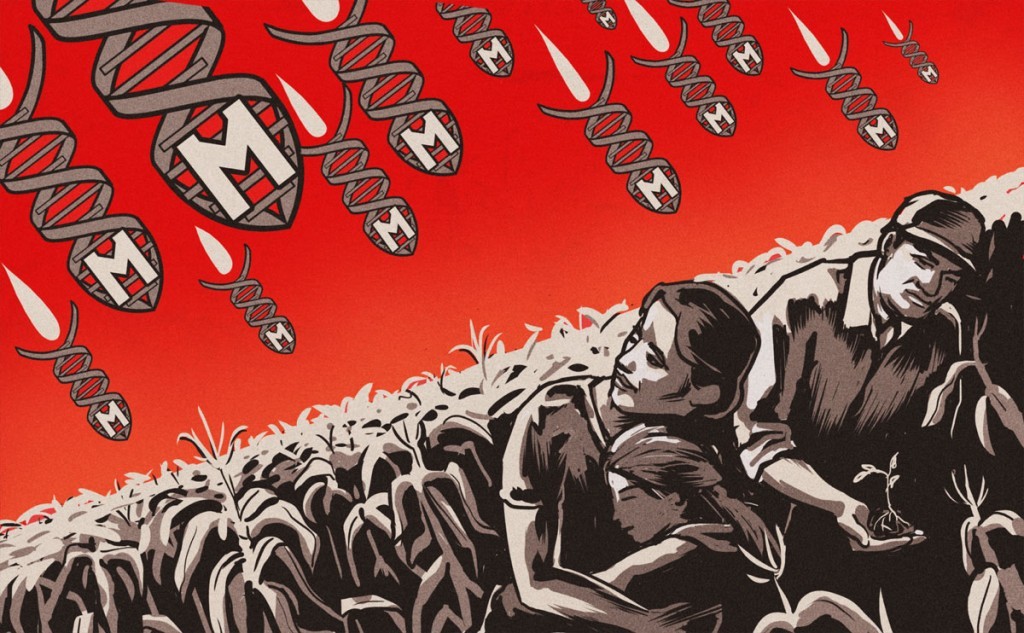by Derrick Broze, Activist Post:

Despite legal threats from the U.S. government, Mexico’s government plans to go forward with a partial ban on imports of genetically modified corn.
On Wednesday Mexico’s National Council for Science and Technology (CONACYT) hosted an online webinar laying out the science behind the nation’s decision to ban imports of genetically modified corn. The webinar itself is a response to repeated claims by the U.S. government that Mexico’s GM corn ban is not based on science.
The webinar was first reported on by Food Tank.
TRUTH LIVES on at https://sgtreport.tv/
CONACYT, the Mexican government’s senior science department, organized several presentations from Mexican scientists detailing the health concerns surrounding GM food and the herbicide glyphosate which is typically sprayed on GM corn produced by Bayer, formerly Monsanto.
For the Mexican farmers who have been cultivating corn for an estimated 8,000 years, GM corn represents a significant threat. GM corn can spread via the birds, bees, and wind, resulting in cross-pollination between traditional crops and GM versions.
During his presentation, Alejandro Espinoza Calderón, director of Mexico’s biosecurity agency Intersecretarial Commission for Biosafety and Genetically Modified Organisms (Cibiogem), noted that,
“Mexico has a rich store of exceptionally healthy varieties of corn. It is alarming to find that 90 percent of tortillas were shown to have traces of both glyphosate and transgenics. The biosecurity of Mexico is of utmost importance.”
National University biologist Ana Laura Wegier Briuolo, a biologist at Mexico’s National University made it clear that “without healthy corn we cannot have healthy people.”
The webinar also focused on the dangers associated with glyphosate. In recent years Monsanto (and now Bayer) have faced dozens of lawsuits related to individuals developing cancer after heavy use of glyphosate.
In August 2018, a California jury found that Monsanto failed to notify consumers of the dangers of the company’s chemical concoctions. The jury handed down a $289 million award to Dewayne Johnson, a former school groundskeeper who claimed Monsanto’s glyphosate-based weed-killers gave him cancer. Johnson told the jury he had been involved in two accidents during his work in which he was doused with the Monsanto’s RoundUp, the first of which happened in 2012. By 2014 Johnson had been diagnosed with non-Hodgkins lymphoma.
During the webinar Dr. Omar Arellano, from the National University’s Ecology and Natural Resources Department, shared data from Mexico, Argentina, and the United States, detailing how glyphosate impacts human health. “The science is much clearer now than it was twenty years ago,” Arellano stated.
Additionally, Dr. Felipe Lozano Kasten, a public health professor in the state of Jalisco, reported a long-term study of 677 children that found 98 percent with glyphosate in their urine. Lozano Kasten said the research showed an association with health problems, including impaired kidney function.
In April 2018, I reported on a study published in the journal Environmental Health which found an association between higher concentrations of glyphosate in the urine of pregnant women and early pregnancies. The study found that 93 percent of the women had glyphosate in their urine, with the women living in rural areas having higher levels than those in the suburbs.
“Glyphosate is often used on major crops on a day-to-day basis . . . but we hardly know anything about how humans are exposed,” lead author Shahid Parvez, a researcher at the Indiana University Fairbanks School of Public Health in Indianapolis, told Reuters at the time. “We don’t want to cause unnecessary panic, but we do want to understand how it affects pregnancy and human health.”
In September 2018, yet another study on glyphosate pointed to potential dangers of the chemical. The study from researchers at the University of Texas at Austin pointed to glyphosate as a culprit for harming special gut bacteria in honey bees. The study, “Glyphosate perturbs the gut microbiota of honey bees”, published in the Proceedings of the National Academy of Sciences, found that exposure to glyphosate was disrupting the gut bacteria and making bees more susceptible to illness.



